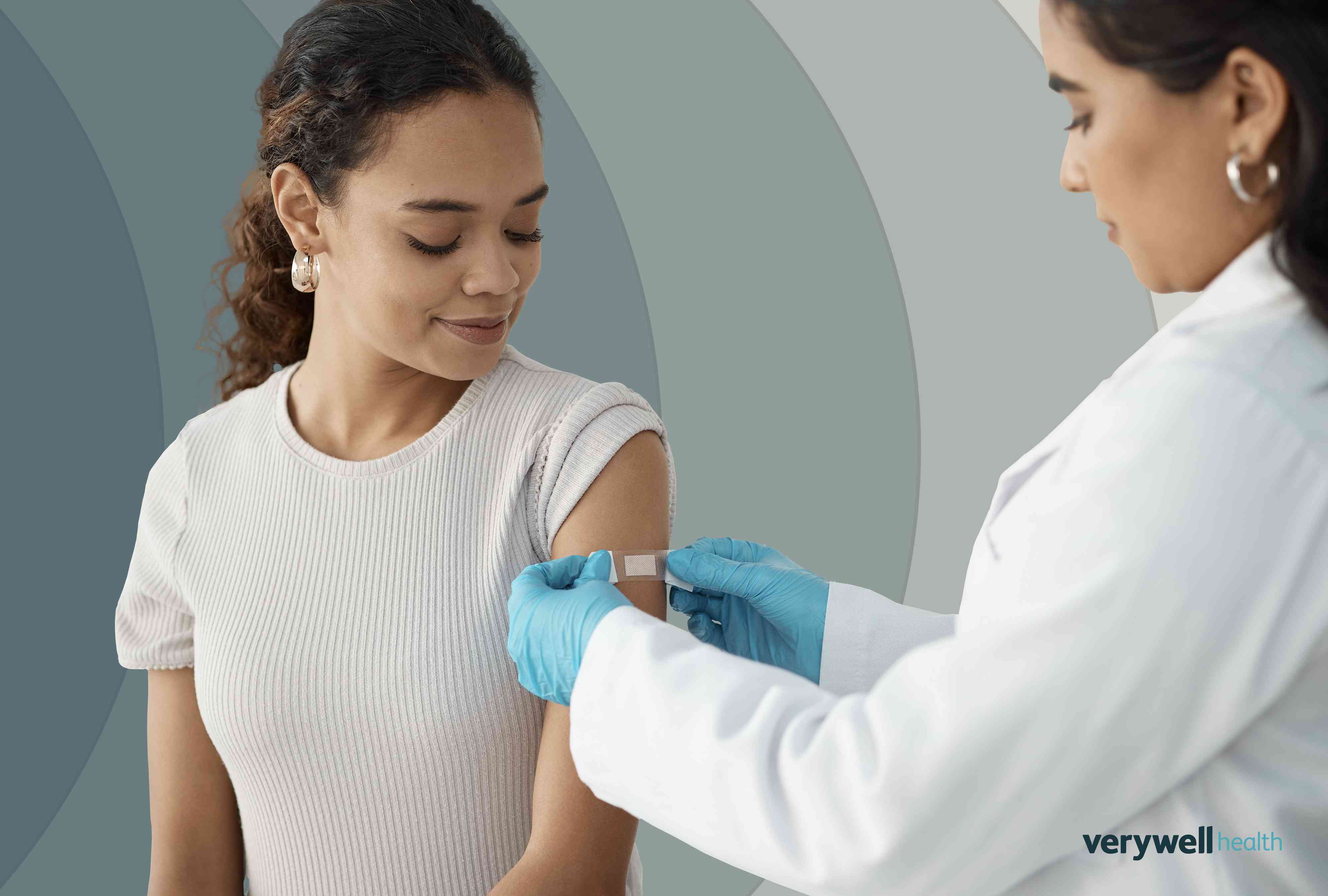
SHOULD YOU GET A MEASLES BOOSTER?
Key Takeaways
- Cases of measles are rising in the U.S. and around the world, which poses a risk for both children and adults who didn’t have the virus or the measles vaccine.
- Adults who don’t recall whether they had measles or at least one dose of the vaccine, and can’t locate proof of either, should get at least one dose of MMR vaccine.
Health organizations, including the American Medical Association (AMA) and the Centers for Disease Control and Prevention (CDC), have recently raised alarm bells on increasing cases of measles in the U.S.
The organizations are urging children and adults who are not fully vaccinated to get the MMR vaccine, a combination shot that protects against measles, mumps, and rubella. Vaccination is especially important if families have international travel plans since cases are mounting outside the U.S. as well.
As of late March, the U.S. reported more than 60 cases of measles for 2024—a higher number of cases than was reported during all of 2023.
Sixty-plus cases may seem like a small number to raise concern, but it’s actually warranted given how contagious measles can be, say experts.
“Unimmunized adults and children are considered susceptible to measles,” Patsy Stinchfield, RN, MS, CPNP, President of the National Foundation for Infectious Diseases (NFID), told Verywell. “Because the virus is so contagious, nine out of 10 susceptible people who are exposed will get measles. It can be a miserable and potentially very serious disease for adults as well as children, and may include pneumonia, brain swelling, and loss of immune memory to other diseases.”
The MMR vaccine was introduced in 1971 and is part of the Child and Adolescent Immunization Schedule, recommended by the CDC to be given in two doses, the first between 12 and 15 months and the second between ages 4 and 6. There are catchup schedules for children and teenagers who didn’t have one or two doses, Linda Yancey, MD, an infectious disease specialist at the Memorial Hermann Health System in Katy, Texas, told Verwyell.
There is no officially recommended booster dose for measles for adults, though some physicians do recommend another dose of the vaccine for older patients in case immunity has waned. Now that cases are climbing, the AMA is asking patients to discuss measles with their doctor and the CDC is recommending that doctors bring it up with their patients, especially if they plan to travel. Some people may have missed one or both doses.
Who Does Not Need an MMR Vaccine?
Anyone born before 1957 is considered to have had measles or been exposed to it and presumed to be immune to the virus. These adults do not need a vaccination.
The problem is that you may not know whether or not you’ve been vaccinated for measles, or whether or not you’ve missed one of the doses.
“If you are unsure if you had measles or had a measles-containing vaccine, talk over the options of doing a blood test to check for measles immune memory,” Stinchfield said.
The test costs about $130 without insurance. If the test shows you don’t have antibodies for measles—whether from vaccination or previous infection—you will then need to get the vaccine, which can cost $100 out of pocket.
If you don’t have insurance to cover the vaccine or are facing a steep deductible or copay, Stinchfield advised calling your city or state health department for clinics that operate on a sliding fee scale. The vaccine could be free based on your income.
You are likely to save time and money, however, by just getting the vaccine if you aren’t sure of your status. It is safe to do so even if you were ultimately vaccinated at a younger age and don’t remember, Joshua Barocas, MD, an infectious disease specialist at the University of Colorado School of Medicine, told Verywell.
“There are downsides to getting [blood] titers checked, which include the fact that these tests are not 100% accurate and they can be costly,” Barocas said. “If individuals are concerned that their titers may have waned, then an additional dose of the vaccine is safe and effective, but people should talk to their healthcare provider about the choice of additional vaccination versus titers versus nothing further.”
For adults who are unsure of their status, one dose of the MMR vaccine is probably sufficient—Stinchfield said it’s 93% effective. But specific groups are encouraged to get two doses, spaced at least 28 days apart:
- Students at post-high school education institutions
- Healthcare workers
- International travelers
Many pharmacies and pharmacy clinics administer the MMR vaccine, though you should call ahead to make sure it’s in stock if you need one.
What This Means For You
If you do not have presumptive evidence of immunity against measles, talk with your doctor about getting vaccinated. If you’re unsure whether you’ve been vaccinated, you should first try to find your vaccination records. If you do not have written documentation of MMR vaccine, you should get vaccinated. The MMR vaccine is safe, and there is no harm in getting another dose if you may already be immune to measles, mumps, or rubella.
Read the original article on Verywell Health.
2024-03-28T14:54:51Z dg43tfdfdgfd